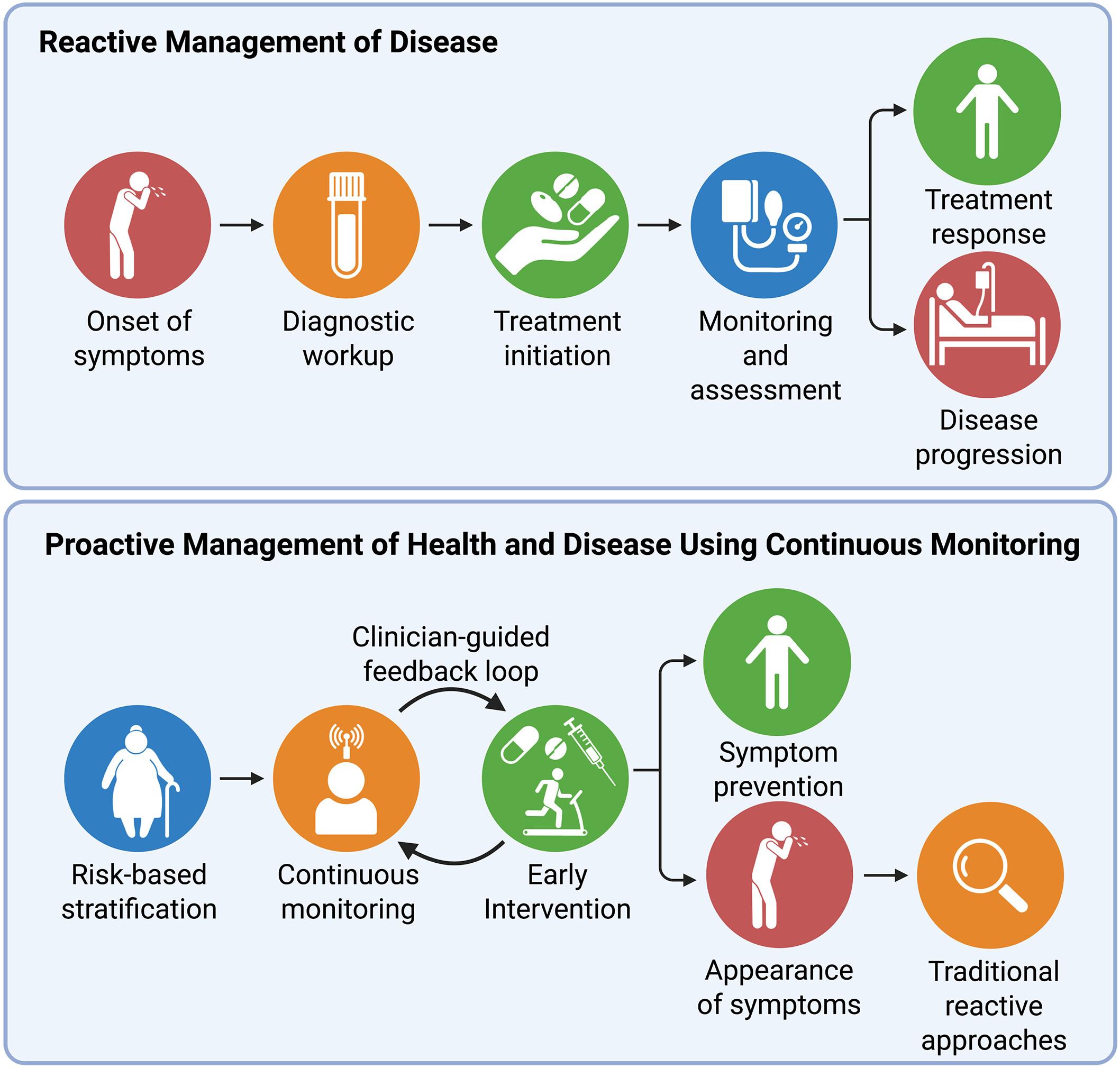From reactive to proactive: Continuous protein monitoring for preventive health care
IF 45.8
1区 综合性期刊
Q1 MULTIDISCIPLINARY SCIENCES
引用次数: 0
Abstract
Continuous biomarker monitoring is revolutionizing chronic disease management, with glucose monitoring for diabetes as the primary example. Given the success of this approach, a transition to continuous protein monitoring (CPM, a real-time, implantable or wearable technology) could similarly advance precision medicine. In this work, we review state-of-the-art CPM platforms and their prospective clinical impact across both chronic disorders—metabolic, cardiovascular, autoimmune, and neurodegenerative—and acute crises, such as sepsis and transplant dysfunction. We also highlight remaining barriers to widespread adoption, including sensor stability, robust machine learning models for live interpretation, and responsible data handling for patient privacy. With continued engineering and clinical validation, emerging biosensor technologies could transform disease management, facilitating earlier interventions and individualizing treatment strategies, ultimately improving patient outcomes.

从被动到主动:预防保健的连续蛋白质监测
持续的生物标志物监测正在彻底改变慢性疾病的管理,糖尿病的血糖监测是主要的例子。鉴于这种方法的成功,向连续蛋白质监测(CPM,一种实时、可植入或可穿戴的技术)的过渡也可以推进精准医疗。在这项工作中,我们回顾了最先进的CPM平台及其在慢性疾病(代谢、心血管、自身免疫和神经退行性疾病)和急性危重症(如败血症和移植功能障碍)中的潜在临床影响。我们还强调了广泛采用的仍然存在的障碍,包括传感器稳定性,用于实时解释的强大机器学习模型,以及对患者隐私负责任的数据处理。随着不断的工程和临床验证,新兴的生物传感器技术可以改变疾病管理,促进早期干预和个性化治疗策略,最终改善患者的治疗效果。
本文章由计算机程序翻译,如有差异,请以英文原文为准。
求助全文
约1分钟内获得全文
求助全文
来源期刊

Science
综合性期刊-综合性期刊
CiteScore
61.10
自引率
0.90%
发文量
0
审稿时长
2.1 months
期刊介绍:
Science is a leading outlet for scientific news, commentary, and cutting-edge research. Through its print and online incarnations, Science reaches an estimated worldwide readership of more than one million. Science’s authorship is global too, and its articles consistently rank among the world's most cited research.
Science serves as a forum for discussion of important issues related to the advancement of science by publishing material on which a consensus has been reached as well as including the presentation of minority or conflicting points of view. Accordingly, all articles published in Science—including editorials, news and comment, and book reviews—are signed and reflect the individual views of the authors and not official points of view adopted by AAAS or the institutions with which the authors are affiliated.
Science seeks to publish those papers that are most influential in their fields or across fields and that will significantly advance scientific understanding. Selected papers should present novel and broadly important data, syntheses, or concepts. They should merit recognition by the wider scientific community and general public provided by publication in Science, beyond that provided by specialty journals. Science welcomes submissions from all fields of science and from any source. The editors are committed to the prompt evaluation and publication of submitted papers while upholding high standards that support reproducibility of published research. Science is published weekly; selected papers are published online ahead of print.
 求助内容:
求助内容: 应助结果提醒方式:
应助结果提醒方式:


